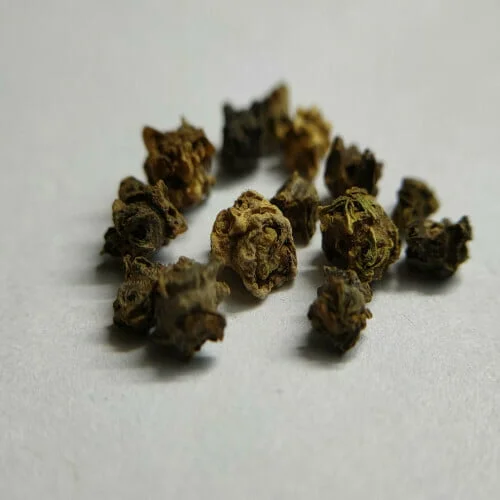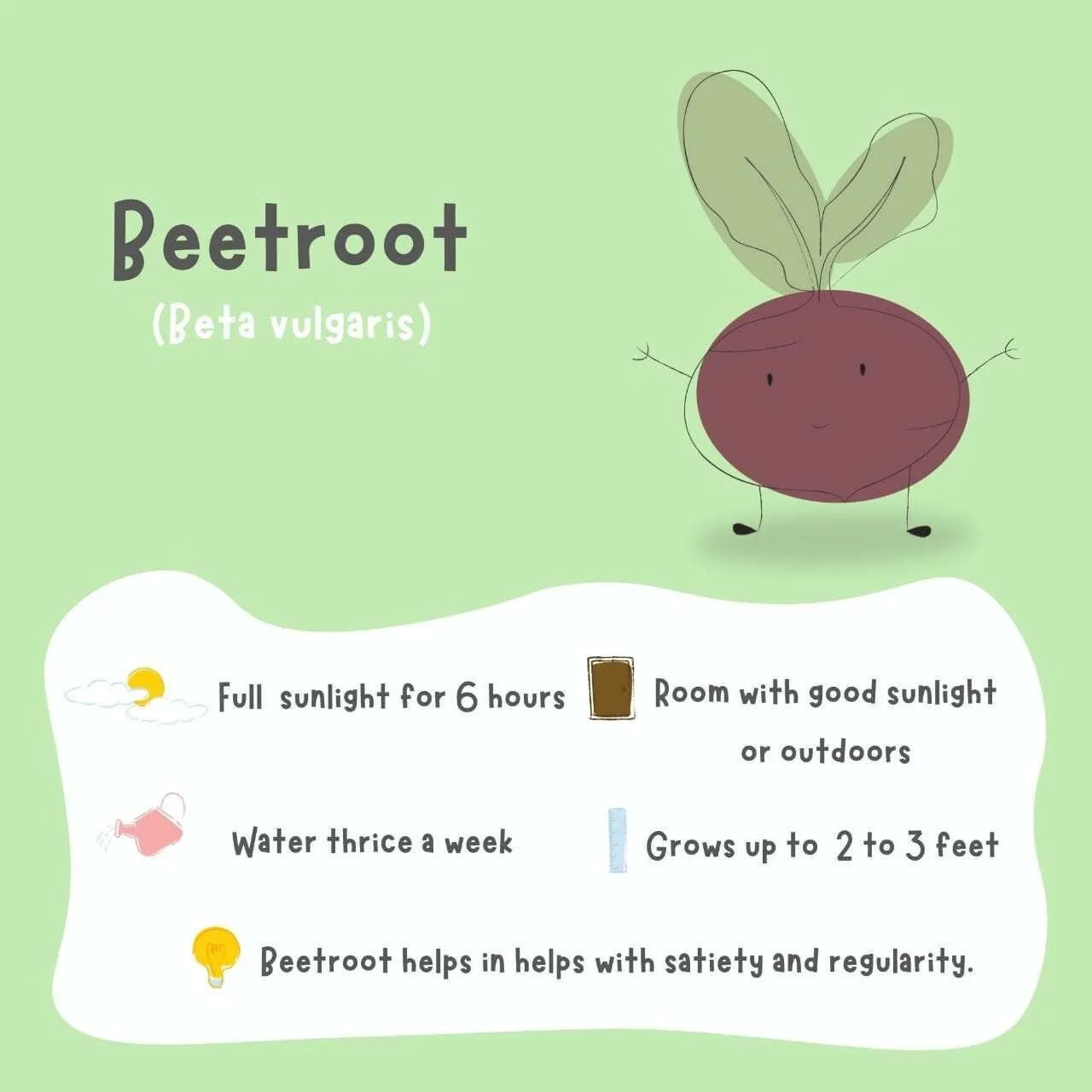Beetroot Seeds (15 seeds)
₹15.0
Beetroot is grown for the pink color that appeals to the food. It is rich in vitamins and iron. Try our Non-GMO Beetroot Seeds. Also, check out our workshops for more details.
PRODUCT DESCRIPTION
Number of seeds in a packet – 15
PLANT DESCRIPTION
- Difficulty Level – Easy
- Plant Height – Upto 15 cm
- Type – Outdoor
- Feed – VermiCompost for nutrients every week, Seaweed once a month for greener leaves and Epsom salt for better blooming once a month.
- Watering – Everyday
- Sunlight – Full sunlight
- Germination time – 1 week
- Fruiting time – 75 – 80 days
- Harvesting time – 90 days
- Suitable Temperature – 10°C – 21°C
- Season – Annual
- Sowing – Winter
ALTERNATE NAME
Botanical name: Beta vulgaris subsp. vulgaris Conditiva Group
beetroot seed in hindi: Chukkandar (चुकंदर)
beetroot seed in tamil: Beetroot (பீட்ரூட்)
beetroot seed in telugu: Bitrut (బీట్రూట్)
beetroot seed in kannada: Beetroot (ಬೀಟ್ರೂಟ್)
beetroot seed in bengali: Bitaruta (বিটরুট)
beetroot seed in marathi: Beetrut (बीटरूट)
beetroot seed in malayalam: Bitrut (ബീറ്റ്റൂട്ട്)
Other names: bitroot..
You must be logged in to post a review.
Q & A
The sustainability of vegetable seeds depends on various factors, including their source, cultivation practices, and genetic characteristics. Here are some aspects to consider regarding the sustainability of vegetable seeds:
Genetic Diversity: Maintaining a diverse gene pool is crucial for the long-term sustainability of vegetable seeds. Genetic diversity helps ensure resilience to pests, diseases, and environmental changes. It allows for adaptation and evolution, making the crops more robust and less susceptible to catastrophic events.
Open-Pollinated Seeds: Open-pollinated seeds are considered more sustainable compared to hybrid or genetically modified seeds. Open-pollinated seeds are pollinated naturally by wind, insects, or other means, preserving their genetic diversity. They can be saved and replanted by farmers, allowing for seed-saving practices and promoting self-sufficiency.
Heirloom Varieties: Heirloom vegetable seeds are open-pollinated varieties that have been passed down through generations. These seeds often have historical, cultural, and culinary significance. By preserving heirloom varieties, farmers and gardeners contribute to maintaining biodiversity and protecting traditional knowledge.
Seed Sovereignty: Promoting seed sovereignty is essential for sustainability. Seed sovereignty emphasizes the rights of farmers and communities to save, exchange, and develop their own seeds. It supports local seed systems, encourages farmers' participation, and reduces dependency on external seed sources.
Organic and Regenerative Farming: Organic and regenerative farming practices promote sustainability by reducing the use of synthetic fertilizers, pesticides, and herbicides. By adopting these practices, farmers protect soil health, enhance biodiversity, and minimize negative impacts on the environment.
Seed Banks and Conservation: Seed banks play a vital role in preserving and conserving genetic diversity. They store and maintain a wide range of seeds, including vegetable seeds, to ensure their availability for future generations. Seed banks also conduct research, facilitate seed exchange programs, and promote education on seed conservation.
Local Adaptation: Selecting and saving seeds from plants that are well-adapted to local conditions can enhance sustainability. Local varieties tend to be better suited to the climate, pests, and diseases of a specific region, reducing the need for external inputs and increasing crop resilience.
Transparency and Access: Ensuring transparency in seed production, distribution, and labeling allows farmers and consumers to make informed choices. Supporting initiatives that promote open access to seed information, such as seed catalogs, seed libraries, and community seed swaps, contributes to seed sustainability.
It's important to note that the sustainability of vegetable seeds is part of a broader context of sustainable agriculture and food systems. By considering these factors and supporting sustainable practices, we can contribute to the long-term viability of vegetable seed resources and promote a more sustainable and resilient food system.
General Inquiries
There are no inquiries yet.





Reviews
There are no reviews yet.